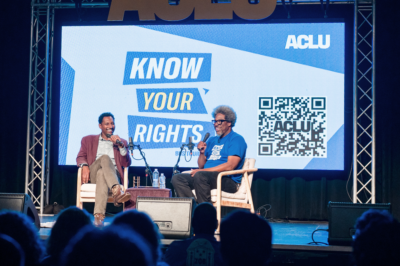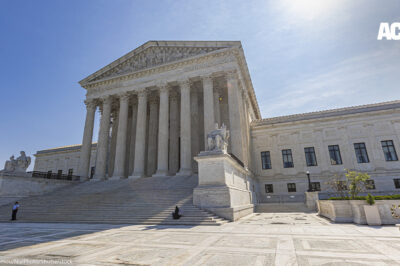ACLU Settlement in South Carolina Provides Model For Providing Public Defenders in Municipal Courts
CHARLESTON, SC — The American Civil Liberties Union, the American Civil Liberties Union of South Carolina, and Nelson Mullins Riley & Scarborough LLP announced a settlement today in their lawsuit challenging the City of Beaufort and Town of Bluffton’s unconstitutional practice of depriving lawyers to poor people facing incarceration if convicted in municipal court.
Under the settlement agreement, both municipalities will implement important changes to their municipal court policies and practices. The municipalities will contract with the 14th Circuit Office of the Public Defender to provide meaningful representation for individuals without the means to hire their own attorney. In addition, the municipalities will provide written notice and oral advisement of the right to counsel to every person charged with an offense that carries the possibility of a jail sentence. The settlement also prevents municipalities from conducting trials in absentia without counsel unless such defendants have willfully waived their rights.
“Whether you are rich or poor, the right to a lawyer is a pillar of our criminal legal system,” said Ezekiel Edwards, director of the ACLU’s Criminal Law Reform Project. “For far too long, municipal courts in South Carolina have run wealth-based systems by treating this constitutional protection as a luxury reserved only for people who could afford it. Today’s settlement protects the guarantee of the right to a public defender for everyone facing criminal charges in municipal courts in Beaufort and Bluffton. Every city in South Carolina must ensure the same protections.”
Each of the lead plaintiffs in the lawsuit was prosecuted, convicted, and jailed by municipal courts in the City of Beaufort or the Town of Bluffton without being appointed a public defender attorney or being advised of the right to counsel.
“We applaud Beaufort and Bluffton for coming to the table and reaching a settlement that will address the constitutional failures in their municipal courts that we documented in our complaint,” said Susan Dunn, ACLU of SC Legal Director. “It is our hope that other cities across the state will take this opportunity to follow their lead and provide public defenders in their courts so that no one is subjected to unfair court proceedings simply because they are poor.”
In a majority of South Carolina’s over 200 municipal courts, public defenders are unavailable. Several fail to provide any representation for poor defendants. As a result, municipalities deprive poor people facing prosecution of meaningful representation, even if they might be convicted and sentenced to jail. Individuals subject to this illegal practice suffer harmful consequences including separation from their children and dependent family members, injury to their physical and emotional health, and adverse impacts on housing, employment, child custody, and immigration status — all because they cannot afford an attorney. “Moving forward, Beaufort and Bluffton will make sure that the right to a lawyer is respected in their courts,” said Stuart Andrews, partner at the law firm Nelson Mullins. “The law is clear — if a city in South Carolina chooses to have a municipal court, either it must provide zealous advocates to poor people prosecuted in those courts or shut down its court.”




